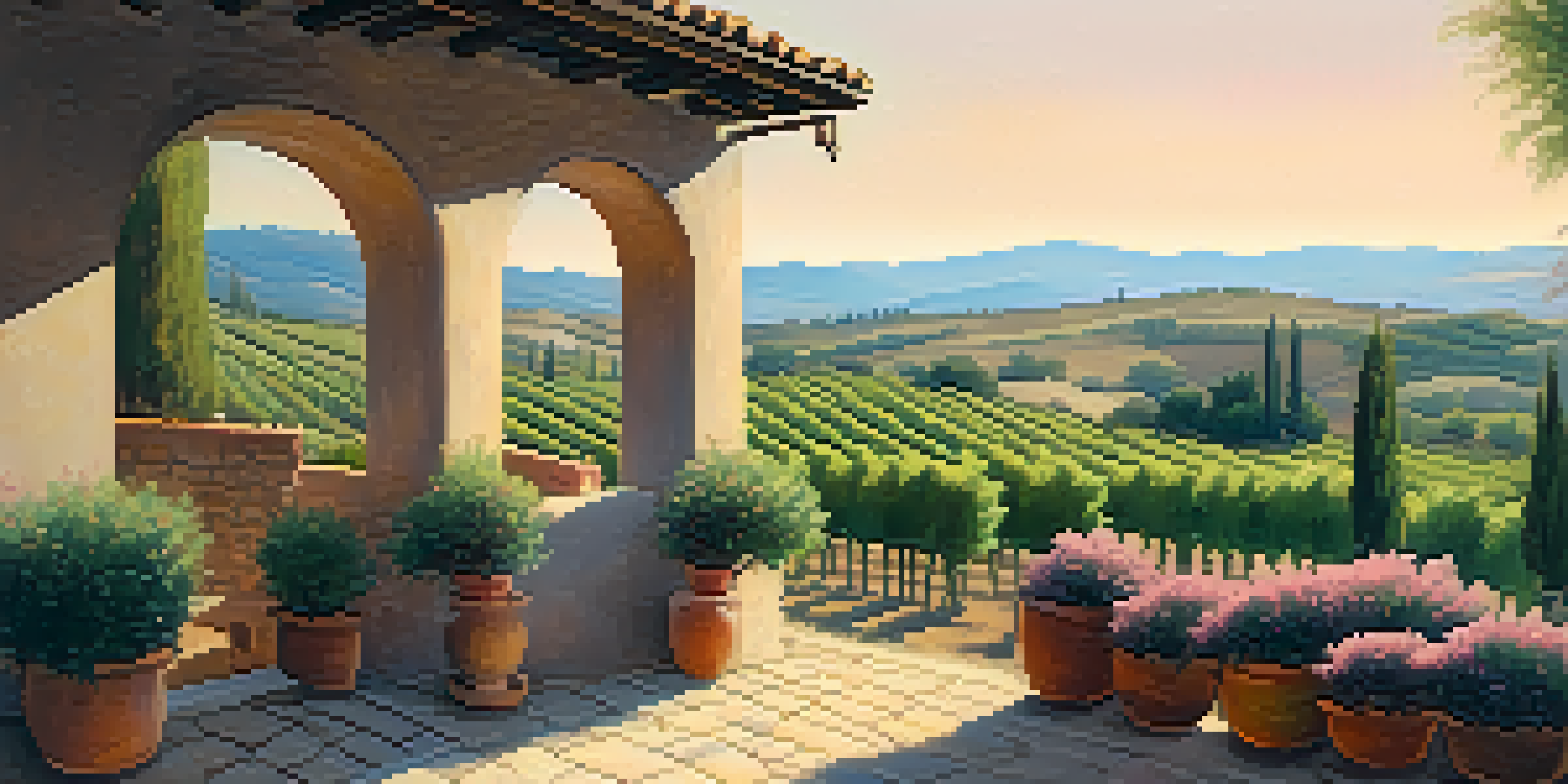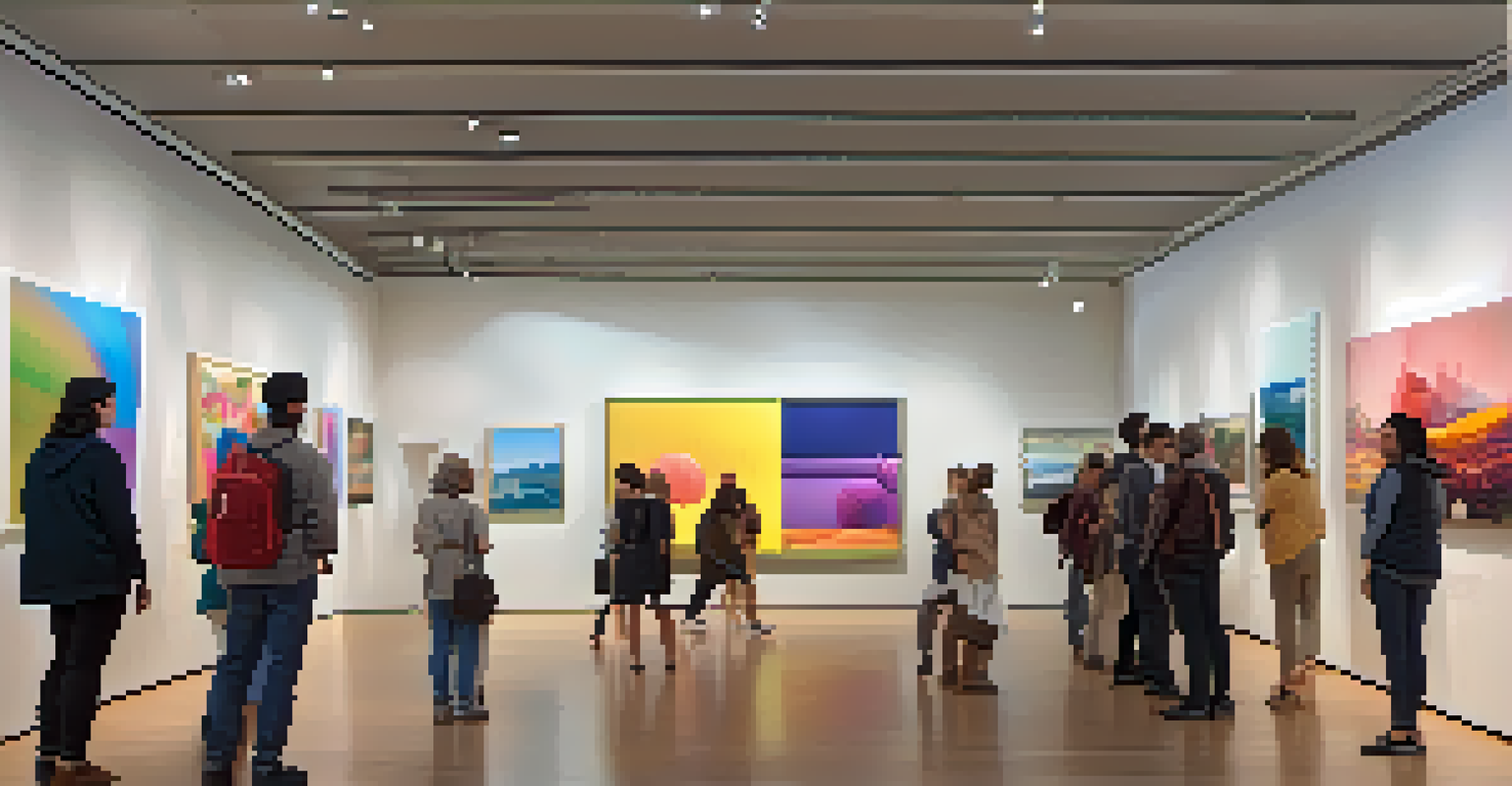The Rise of Cultural Luxury: Redefining Wealth and Experience

Understanding Cultural Luxury: A New Definition of Wealth
Cultural luxury is emerging as a powerful concept, shifting the focus from material possessions to enriching experiences. Unlike traditional luxury, which often emphasizes exclusivity and opulence, cultural luxury invites individuals to immerse themselves in art, history, and unique experiences that foster personal growth. Think of it as trading in your diamond watch for a week-long artist residency in Tuscany—an experience that nourishes the soul.
The greatest wealth is to live content with little, for there is never want where the mind is satisfied.
This transformation reflects broader societal changes where people prioritize experiences over things. Surveys show that millennials and Gen Z are more inclined to spend on travel, concerts, and workshops than on luxury goods. They seek fulfillment in shared moments and cultural connections, reconfiguring what it means to be 'wealthy' in today's world.
As a result, the idea of cultural luxury is redefining not just personal values but also the luxury market itself. Brands are now cultivating immersive experiences, highlighting narratives around craftsmanship and cultural significance instead of merely showcasing products. In this new landscape, wealth is measured not by what you own but by the richness of your experiences.
The Role of Authenticity in Cultural Luxury Experiences
Authenticity is a key pillar of cultural luxury; consumers crave genuine experiences that resonate on a personal level. This desire for authenticity has led to a surge in local craftsmanship, artisanal goods, and culturally rooted experiences. Whether it's attending a traditional cooking class or participating in a local festival, people are increasingly drawn to activities that offer a taste of true culture.

Brands that embrace this authenticity can create deeper connections with their audiences. For example, luxury hotels are now offering curated experiences, like guided tours of local art scenes or partnerships with local chefs, allowing guests to engage with the culture. This personalization not only enhances the guest experience but also builds loyalty and trust.
Cultural Luxury Redefines Wealth
Today's luxury is shifting focus from material possessions to enriching experiences that foster personal growth.
Moreover, consumers today are savvy; they can easily spot inauthenticity. Brands that fail to genuinely represent cultural elements risk backlash and alienation. Thus, creating authentic experiences is not just a trend but a necessity for brands wishing to thrive in the cultural luxury space.
Sustainability: A Core Component of Cultural Luxury
Sustainability has become intertwined with the concept of cultural luxury, as consumers increasingly seek out eco-friendly and socially responsible experiences. This shift emphasizes the importance of preserving cultural heritage while also protecting the environment. Travelers are now more inclined to support businesses that prioritize sustainability, favoring experiences that give back to the community.
Wealth consists not in having great possessions, but in having few wants.
For instance, many luxury travel companies are now offering eco-conscious tours that not only highlight local culture but also promote conservation efforts. This might include visiting indigenous communities that practice sustainable farming, thus enriching the travel experience while contributing positively to the environment. It's a win-win situation.
As this trend continues, brands that align their values with sustainability will likely see greater success. By creating meaningful experiences that respect both culture and the planet, they position themselves as leaders in the evolving luxury market, appealing to the socially conscious consumer.
The Impact of Technology on Cultural Luxury Experiences
Technology is reshaping the landscape of cultural luxury, providing new platforms for immersive experiences. Virtual reality (VR), augmented reality (AR), and mobile applications are now making it possible for consumers to engage with culture in innovative ways. Imagine exploring the Louvre from your living room or taking a virtual tour of a historic site before visiting it in person.
These technological advancements not only enhance accessibility but also elevate the overall experience. Consumers can now explore art, music, and history in more interactive ways, making cultural engagement more enticing. This shift is particularly significant for younger generations who are digital natives and seek engaging, tech-driven experiences.
Authenticity Drives Consumer Choices
Consumers increasingly crave genuine cultural experiences, pushing brands to create authentic and personalized offerings.
However, while technology offers exciting opportunities, it’s essential to find a balance. Over-reliance on tech could detract from the authenticity of cultural experiences. Therefore, brands need to integrate technology thoughtfully, ensuring it complements rather than replaces the richness of real-world cultural interactions.
Cultural Luxury in Travel: A Unique Approach to Exploration
Travel is perhaps the most evident domain where cultural luxury has made a significant impact. Instead of simply checking off destinations from a bucket list, travelers now seek out deeper cultural immersions. This trend has led to a rise in boutique hotels that offer local experiences, like guided tours with local historians or culinary classes with renowned chefs.
Consider a traveler who opts for a homestay experience in a rural village instead of a traditional hotel. This choice not only provides a unique glimpse into everyday life but also fosters a connection with the local culture. Such experiences celebrate the diversity of cultures around the world, making travel more meaningful.
As a result, the travel industry is evolving to meet these desires, offering experiences that reflect the values of cultural luxury. This might include partnerships with local artisans or eco-friendly excursions that highlight the beauty and history of the area. Ultimately, the focus is on creating memorable journeys that enrich the traveler’s understanding of the world.
Art as a Beacon of Cultural Luxury and Wealth
Art has long been a symbol of luxury, but its role is shifting in the context of cultural luxury. Today, art is not just for admiration in galleries but has become an integral part of experiential luxury. People are now more interested in engaging with art—whether it’s through workshops, studio visits, or interactive installations—rather than just owning it.
This trend reflects a broader appreciation for creativity and the stories behind the art. Collectors are increasingly supporting living artists and emerging talents, recognizing that the value of art lies in its cultural significance and the experiences it can provide. Participating in the creation of art or understanding the cultural context behind it adds layers to the experience.
Sustainability Shapes Luxury Market
The integration of sustainability in cultural luxury highlights the importance of eco-friendly practices and community support.
Additionally, galleries and museums are adapting by offering interactive exhibitions and programs that encourage visitor engagement. This transformation not only attracts a wider audience but also elevates the status of art as a vital part of our cultural fabric, linking it to the notion of wealth in experience rather than ownership.
The Future of Cultural Luxury: A Continuous Evolution
As we look to the future, it’s clear that cultural luxury will continue to evolve, reflecting changes in consumer values and societal trends. The emphasis on experiences, authenticity, and sustainability will likely remain at the forefront. Brands that adapt to these shifts will be the ones that thrive in this new luxury paradigm.
Moreover, as global connectivity increases, cultural luxury will become even more accessible. People from diverse backgrounds will share their cultures, leading to an enriched understanding and appreciation of global diversity. This cultural exchange will foster a more profound sense of community and belonging, which is a luxurious experience in itself.

Ultimately, the rise of cultural luxury signifies a broader shift in how we define wealth. It invites us to reconsider our priorities and embrace a lifestyle that values experiences and connections over material possessions. As this trend continues to grow, it will shape not only the luxury market but also the way we experience and appreciate the world around us.